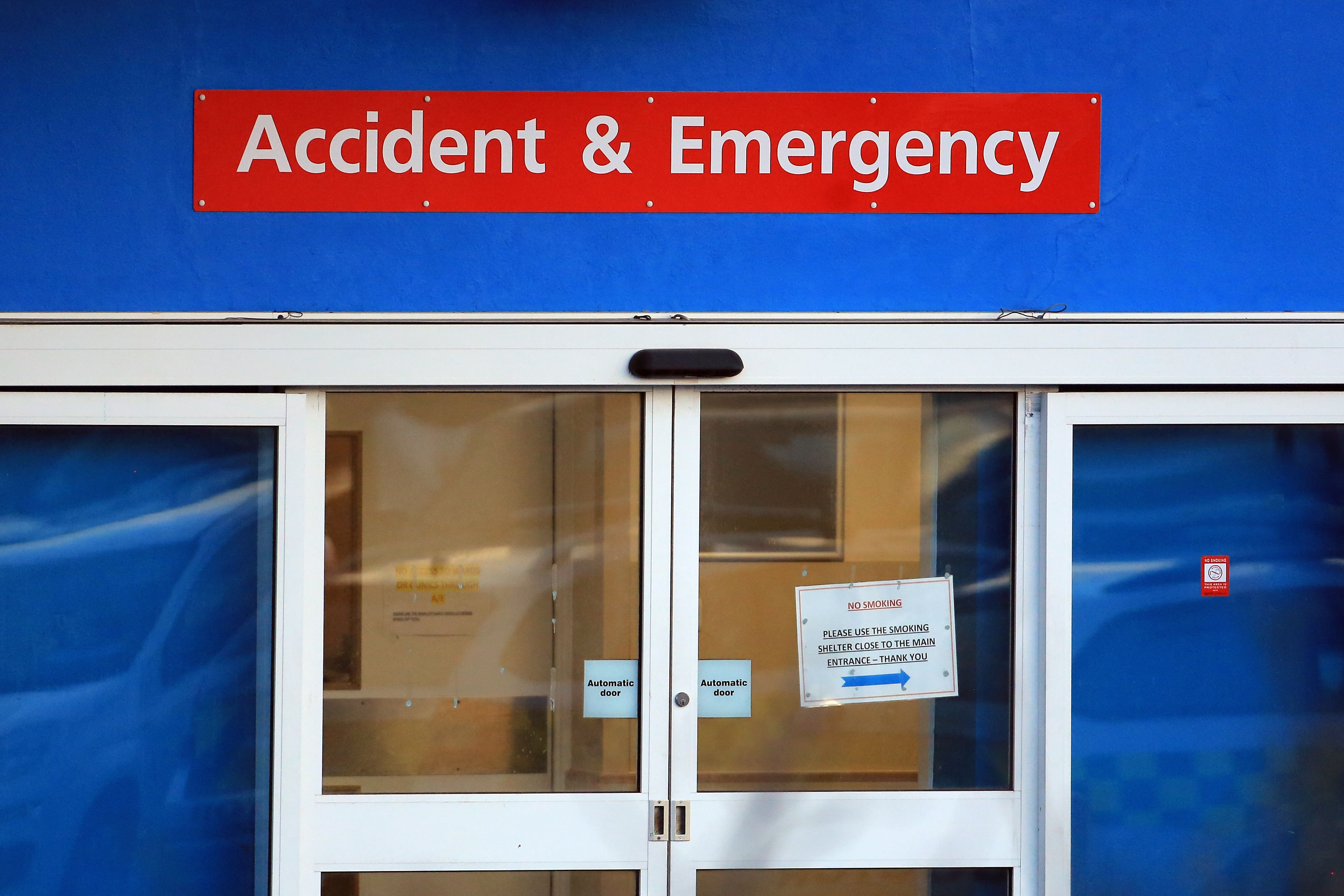More than 800 undiagnosed HIV and hepatitis cases found with routine A&E testing
The health service introduced opt-out HIV screening in April to 33 hospital departments as part of efforts to stop new cases by 2030.

Your support helps us to tell the story
From reproductive rights to climate change to Big Tech, The Independent is on the ground when the story is developing. Whether it's investigating the financials of Elon Musk's pro-Trump PAC or producing our latest documentary, 'The A Word', which shines a light on the American women fighting for reproductive rights, we know how important it is to parse out the facts from the messaging.
At such a critical moment in US history, we need reporters on the ground. Your donation allows us to keep sending journalists to speak to both sides of the story.
The Independent is trusted by Americans across the entire political spectrum. And unlike many other quality news outlets, we choose not to lock Americans out of our reporting and analysis with paywalls. We believe quality journalism should be available to everyone, paid for by those who can afford it.
Your support makes all the difference.More than 800 people living with undiagnosed HIV and hepatitis have been identified in just six months following the rollout of routine testing in A&E, according to NHS England.
The health service introduced opt-out HIV screening in April to 33 hospital departments as part of efforts to become the first country in the world to stop new cases of the virus before 2030.
Latest data suggests there have been 834 newly identified cases of people living with HIV, hepatitis B or hepatitis C found between April and September following its launch.
NHS England said 153 people who were previously diagnosed but were not receiving NHS care were also identified.
Under the programme, people visiting an emergency department are offered a discreet test which screens for HIV, hepatitis B and hepatitis C.
If the result is positive, the patient is offered specialist support and a treatment plan is put in place for them.
Professor Sir Stephen Powis, NHS national medical director, said: “The NHS is committed to increasing early detection diagnoses of HIV, hepatitis and other blood-borne viruses, to ensure people have access to the latest and most effective life-saving medication, which prevents long-term health issues and reduces the chance of unknown transmissions to others.
The roll out of testing in A&Es is a great example of how the NHS is working to make every contact with patients count when it comes to supporting people to stay well and prevent illness, saving lives and money in the long run
“The rollout of testing in A&Es is a great example of how the NHS is working to make every contact with patients count when it comes to supporting people to stay well and prevent illness, saving lives and money in the long run”.
Anne, a woman in her 50s living with HIV, said the testing saved her life after she was taken to hospital by her sons when she fell ill one night.
“You could say I was delirious, sweating, I thought it was menopause related. It became so bad my boys took me to A&E, which I don’t remember,” she said.
“When I came round, I was dazed, confused and in agony. I had all manner of blood tests, a lumbar puncture, I was then told I had HIV.
“Routine testing at A&E was a blessing. I’m alive and well, I have medication which keeps me healthy and stops me from passing the virus on.”
More than 2,500 people were diagnosed with HIV in England in 2021, according to NHS England.
This innovative and cost-effective approach is so impactful as it reaches people who are very unlikely to test via any other route
Health chiefs have promoted emergency department opt-out HIV and hepatitis testing as an an effective way to reach people who may not otherwise come across testing opportunities, such as at sexual health clinics.
Ian Green, chief executive of the Terrence Higgins Trust, said: “Opt-out HIV testing is already having a big impact in finding people living with undiagnosed HIV, as well as returning many others to HIV care.
“This innovative and cost-effective approach is so impactful as it reaches people who are very unlikely to test via any other route.”
Minister for public health Neil O’Brien said: “Our commitment to prevention and public health campaigns have helped to reduce new HIV infections by tackling stigma and urging more people to get tested, as well as accessing life-saving treatment.
“Our £20 million investment in HIV testing in emergency departments in the highest HIV prevalence local authority areas in England has been highly successful. “